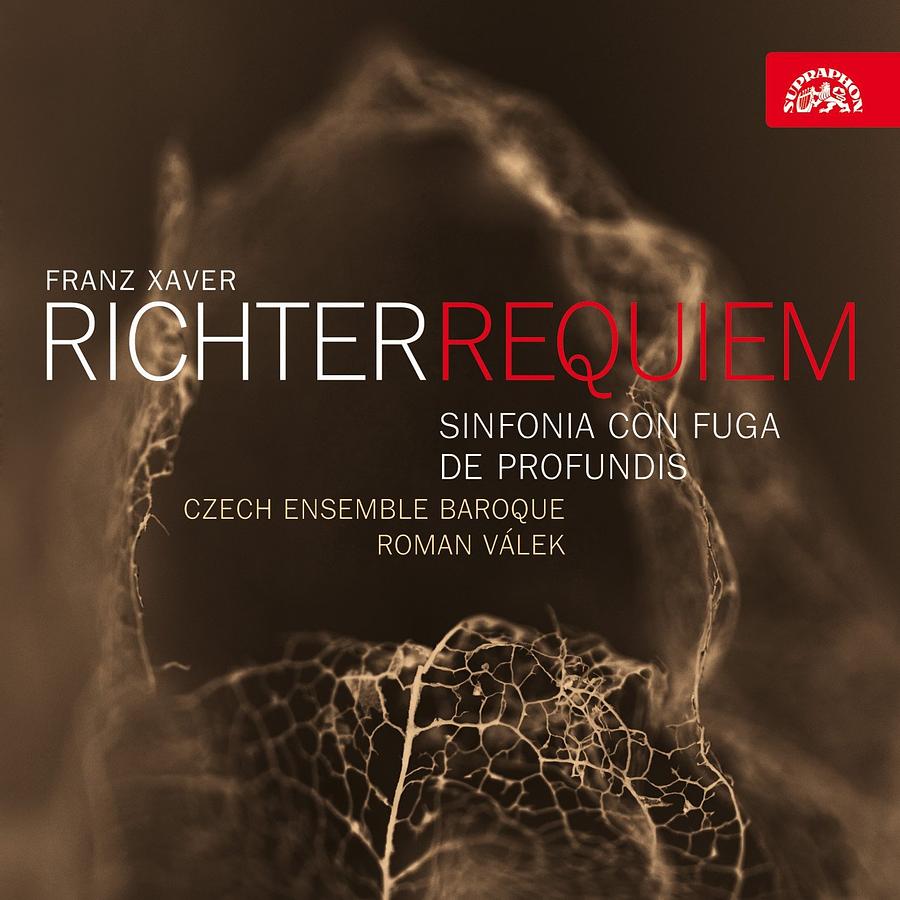Franz Xaver Richter: Requiem
| 作者 | Roman Valek/ Czech Ensemble Baroque |
|---|---|
| 出版社 | 上揚國際股份有限公司 |
| 商品描述 | Franz Xaver Richter: Requiem:" hesatdowninanarmchair,poredoverforthelasttimethescoreofthemourningmusichehimselfhadcomposedforhisfuneral,and-whenlightlytouchedb |

| 作者 | Roman Valek/ Czech Ensemble Baroque |
|---|---|
| 出版社 | 上揚國際股份有限公司 |
| 商品描述 | Franz Xaver Richter: Requiem:" hesatdowninanarmchair,poredoverforthelasttimethescoreofthemourningmusichehimselfhadcomposedforhisfuneral,and-whenlightlytouchedb |
內容簡介 " he sat down in an armchair, pored over for the last time the score of the mourning music he himself had composed for his funeral, and - when lightly touched by the angel of death - bowed his head and passed away." C. F. Schubart's description of the death in 1789 of the eighty-year-old F. X. Richter, Kapellmeister of the Cathedrale Notre-Dame in Strasbourg, may be rather romantic (two years later an almost identical story related to the last moments of W. A. Mozart), yet when looking at the clean copy of the autograph score we cannot resist the idea that the Requiem encapsulates the quintessence of his legacy. A truly extraordinary figure, standing out among the plethora of Czech composers based abroad, Richter's singular musical phraseology reflects the places where he studied and worked: contrapuntal mastery (a pupil of J. J. Fux in Vienna), elements of Neapolitan opera, the Mannheim school He had a reputation as a guardian of the traditions of the "genuine church style" at the time when the pre-Classicist galant style was taking hold. How striking a similarity with the "Dresden" Zelenka! Perhaps this is one of the reasons why Richter's music, his grand vocal works in particular, is still awaiting discovery. The two mourning pieces were written in Strasbourg, where Richter lived from 1769, the sacred Sinfonia con fuga came to light in Mannheim. The distinguished Czech Ensemble Baroque are among those who are today undertaking to mediate Richter's remarkable oeuvre. The Requiem composed by Richter for his own journey to eternity - premiere recording.
各界推薦 http: www.supraphon.com en catalogue on-line-database detail ?idtitulu=2027577
作者介紹 ■作者簡介Tereza Valkova(chorus master) Jiri Miroslav Prochazka(bass) Marketa Cukrova(contralto)Roman ValekFranz Xaver Richter
| 書名 / | Franz Xaver Richter: Requiem |
|---|---|
| 作者 / | Roman Valek Czech Ensemble Baroque |
| 簡介 / | Franz Xaver Richter: Requiem:" hesatdowninanarmchair,poredoverforthelasttimethescoreofthemourningmusichehimselfhadcomposedforhisfuneral,and-whenlightlytouchedb |
| 出版社 / | 上揚國際股份有限公司 |
| ISBN13 / | |
| ISBN10 / | 9925417724 |
| EAN / | 0099925417727 |
| 誠品26碼 / | 2681095196007 |
| 語言 / | 99:無 |
| 級別 / | N:無 |